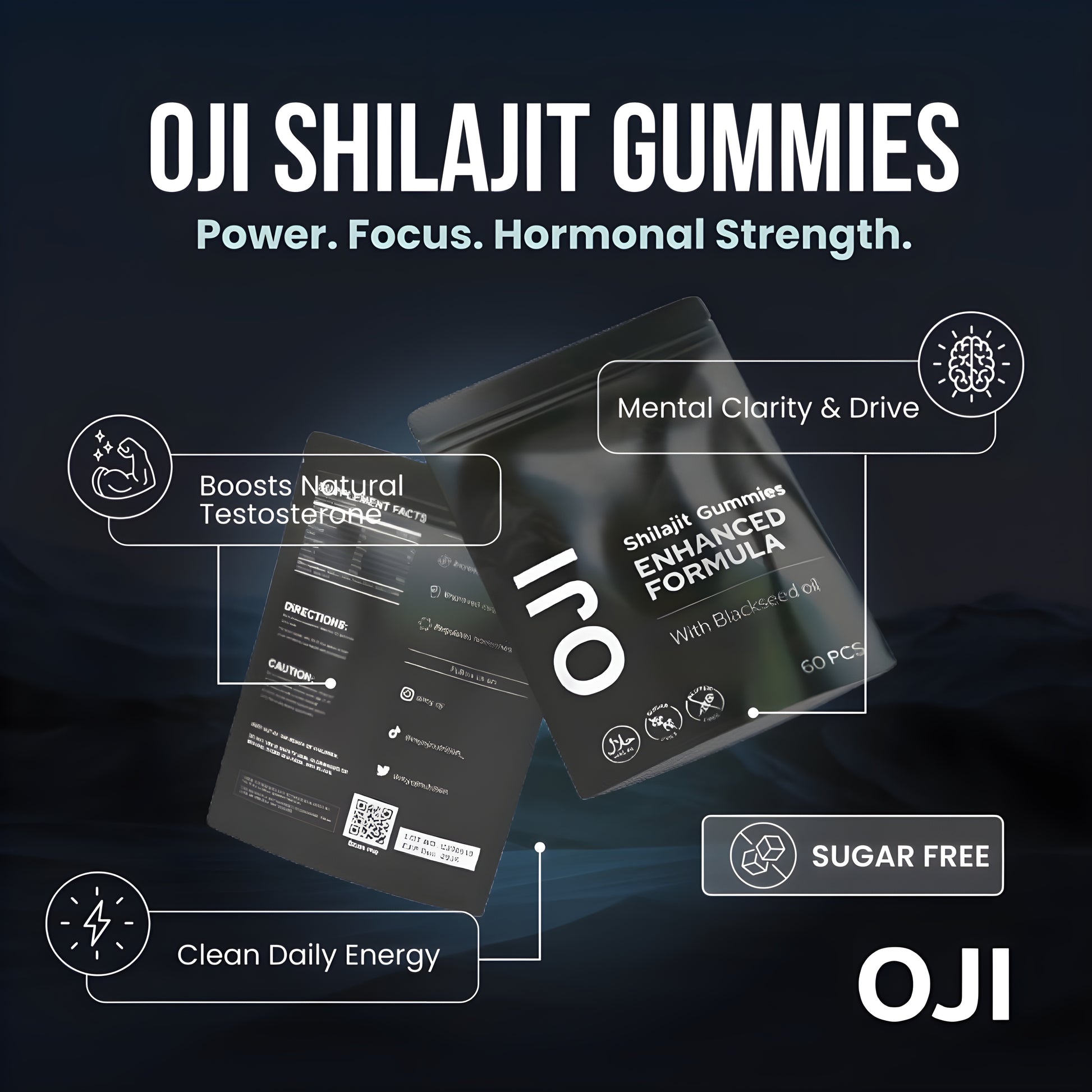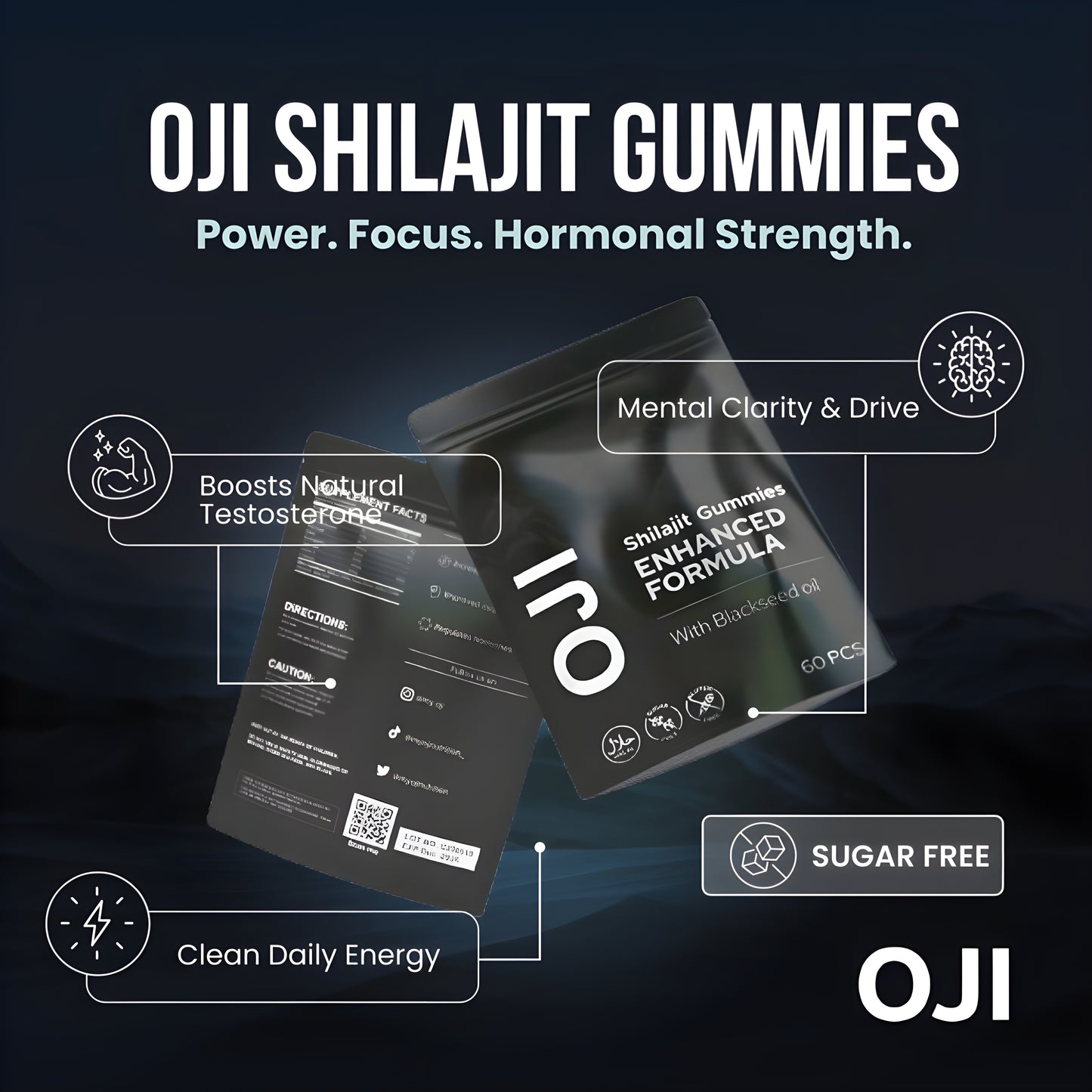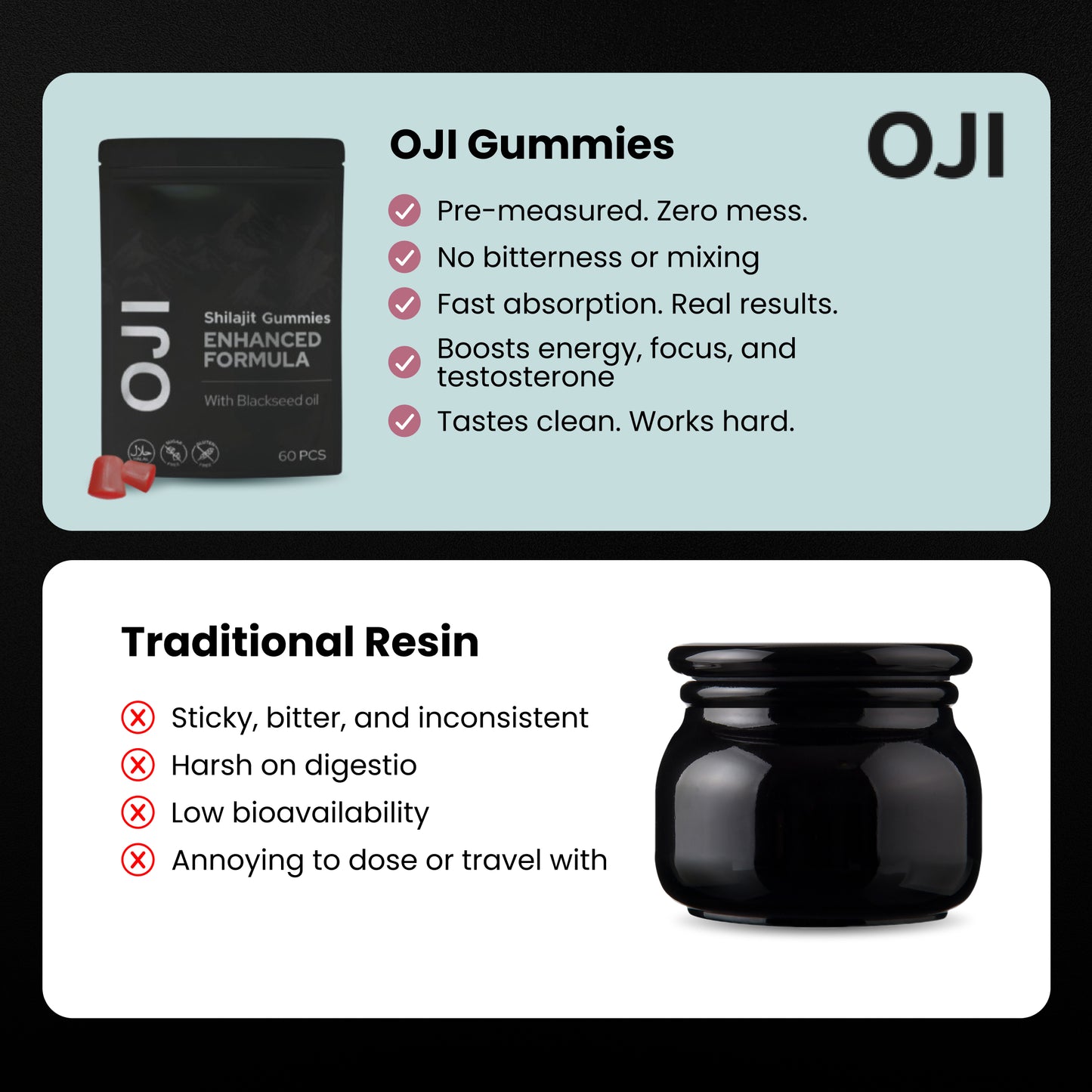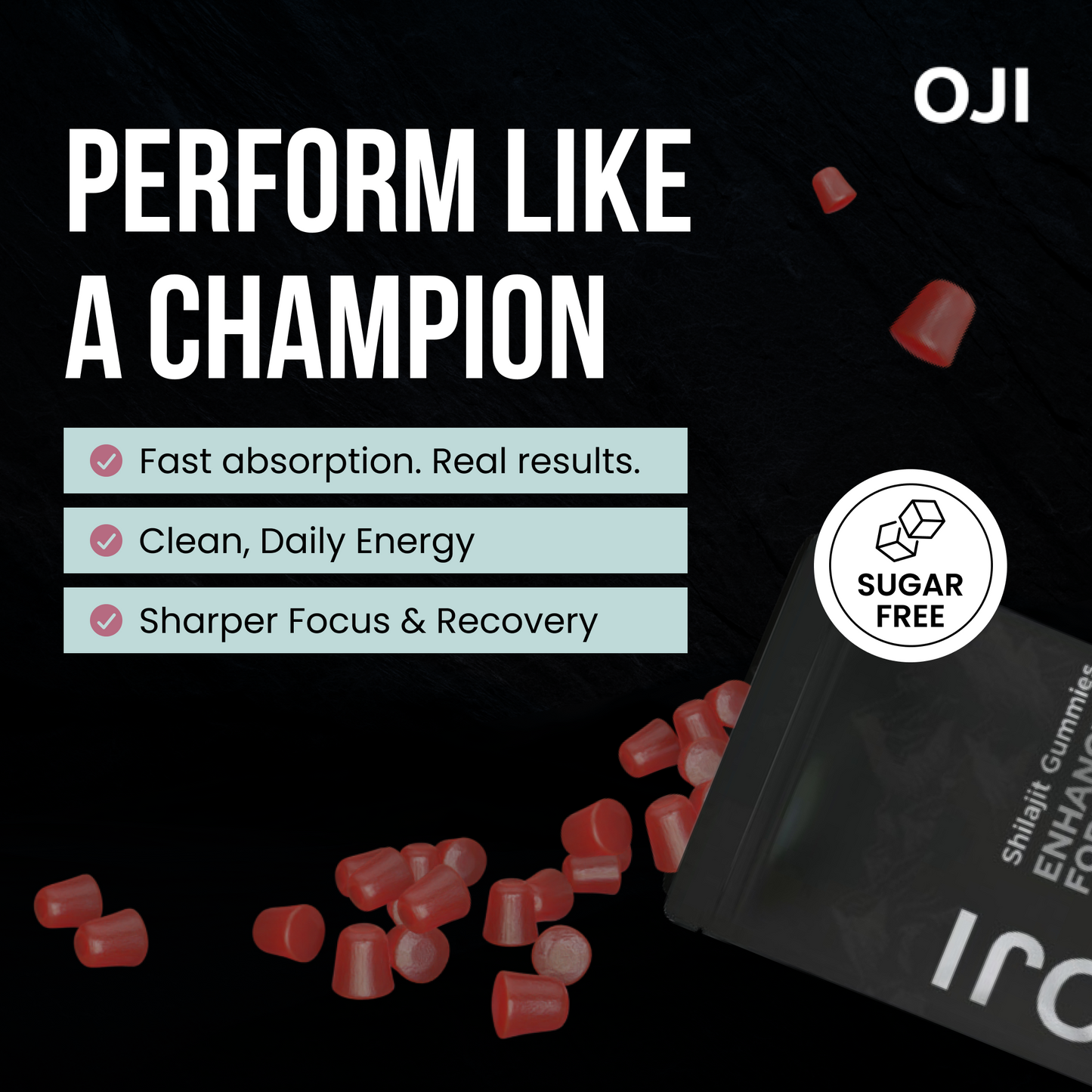If you're ready to boost your testosterone naturally, let's get straight to the point. Lasting results don't come from a magic pill; they come from taking smart, decisive action in your daily life. The formula is proven and simple: combine targeted nutrition, effective exercise, and restorative sleep.
This guide provides a clear, actionable roadmap to build a powerful foundation for your hormone health, one step at a time.
Building a Foundation for Natural Hormone Health
Deciding to boost your testosterone is the first action toward reclaiming your vitality. It’s not about chasing quick fixes, but about creating a solid internal environment where your body can thrive.
Across the UK, more and more men are taking action based on how their daily habits—from the food on their plate to how they unwind—directly impact their hormonal balance.
It also helps to understand what's considered "normal." Natural testosterone levels vary hugely from person to person, and the official NHS guidelines for getting treatment can be quite strict. This means many men who are genuinely feeling the effects of low T might not qualify for medical help, which makes these lifestyle strategies even more crucial. For a deeper dive into this, you can get more details about UK testosterone level guidelines from Balance My Hormones.
This guide is designed to cut through the noise and focus on the pillars that actually work. Let's get into actionable steps you can start using today, putting the control back in your hands.
The core idea is simple: give your body the support it needs, and it will reward you with better energy, sharper focus, and an overall sense of well-being. This is a long-term game, not a temporary patch-up job.
Instead of feeling overwhelmed by a long list of "to-dos," it’s much more effective to concentrate on the few areas that deliver the biggest bang for your buck. These are the absolute bedrock of any successful plan to enhance your testosterone naturally.
Key Pillars for Natural Testosterone Enhancement
To make it simple, we can break down the most impactful lifestyle changes into three core pillars. Focusing your energy here will create a self-reinforcing cycle that promotes hormonal balance and overall health.
| Lifestyle Pillar | Primary Goal | Key Action |
|---|---|---|
| Targeted Nutrition | Fuel Hormone Production | Eat plenty of healthy fats, quality protein, and essential micronutrients. |
| Smarter Exercise | Stimulate Testosterone Release | Focus on resistance training and high-intensity interval training (HIIT). |
| Recovery & Resilience | Minimise Cortisol & Optimise Sleep | Prioritise 7-9 hours of quality sleep and actively manage daily stress. |
By mastering these fundamentals, you’re not just chasing a number on a lab report; you're building a healthier, more resilient version of yourself from the ground up.
Eating for Optimal Hormone Production
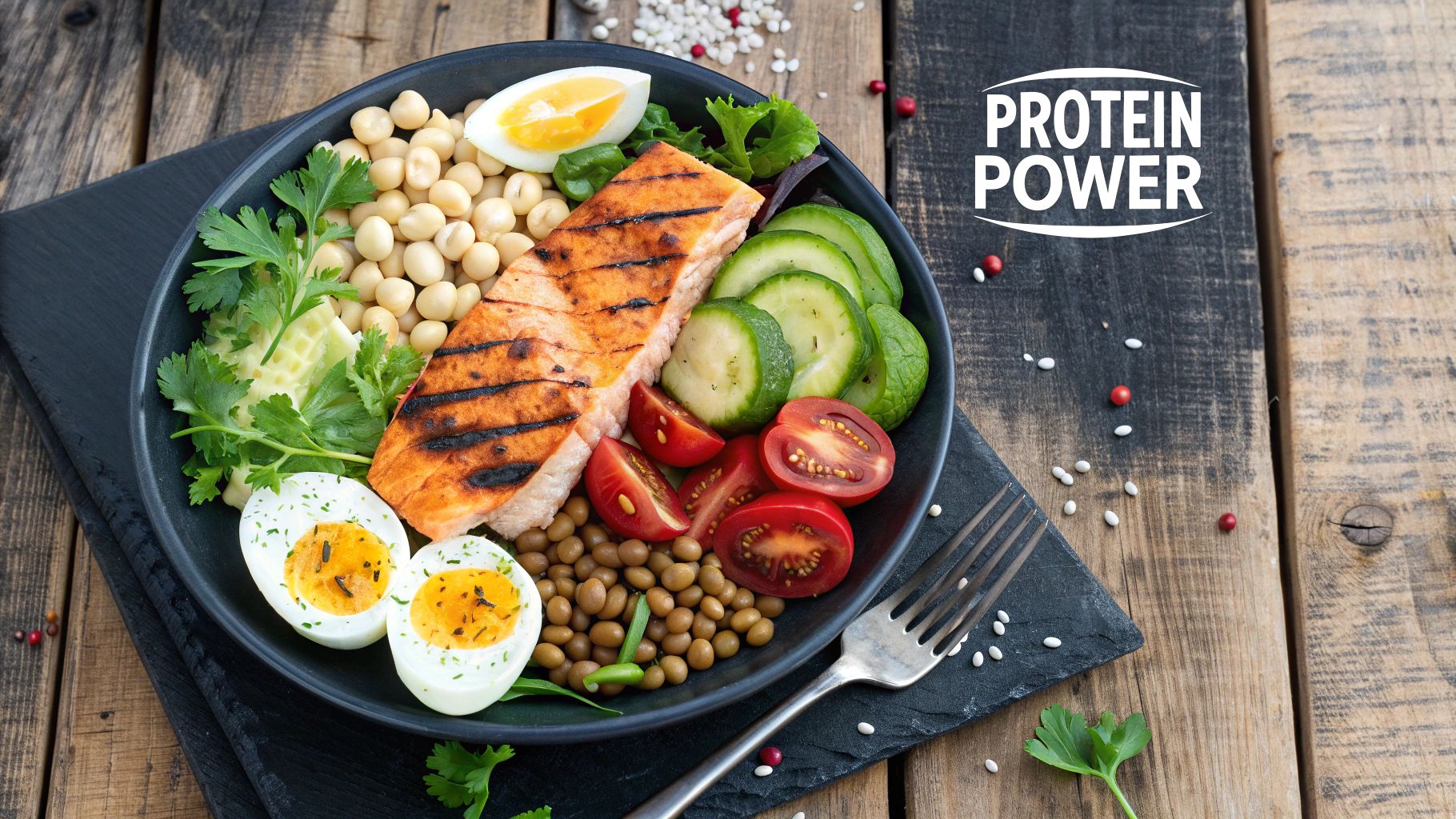
Your diet provides the raw materials your body needs for everything, including making hormones. To boost testosterone naturally, you must build an eating strategy that delivers the essential building blocks for peak hormone production.
It all starts with what you put on your plate. Think of it like building a house – you can't construct a sturdy home with flimsy materials. In the same way, you can't expect healthy testosterone levels without the right nutritional foundation.
Prioritise Hormone-Friendly Fats
Let's get one thing straight: healthy fats are essential for testosterone production. Your body uses cholesterol from the fats you eat to create steroid hormones, including testosterone. Cutting them out is one of the quickest ways to sabotage your own efforts.
Focus on incorporating these key sources into your daily meals:
- Monounsaturated Fats: Add olive oil, avocados, and nuts like almonds and cashews to your diet.
- Polyunsaturated Fats (Omega-3s): Eat fatty fish like salmon, mackerel, and sardines.
- Saturated Fats: Get these from quality sources in moderation, such as eggs (eat the yolk), grass-fed beef, and coconut oil.
Here's a simple, actionable swap: start cooking with extra virgin olive oil instead of processed vegetable oils. Add half an avocado to your breakfast. These small adjustments provide the very fuel your hormonal system needs to fire on all cylinders.
One of the most common mistakes is adopting a strict low-fat diet to get leaner. While managing calories is crucial for your physique, slashing your fat intake can directly tank your testosterone levels. The secret is choosing the right fats, not eliminating them.
Fuel Up with Micronutrient-Dense Foods
Certain vitamins and minerals play a starring role in the testosterone production line. A deficiency in any of them can create a serious bottleneck. For those of us in the UK, getting enough of these can be a real challenge, especially during the darker months.
The two big players here are zinc and magnesium. Zinc is a crucial enzyme regulator in the testosterone synthesis pathway. Get it from oysters, beef, pumpkin seeds, and lentils.
Magnesium is another powerhouse, helping to increase both free and total testosterone levels, particularly when you combine it with regular exercise. Find it in foods like spinach, almonds, dark chocolate, and black beans. For a more exhaustive rundown, check out our guide on the best foods to increase testosterone for more ideas to add to your shopping list.
Identify and Remove Dietary Saboteurs
What you don't eat is just as important as what you do. Some foods and drinks actively work against you, undermining your efforts to boost testosterone naturally.
Limit or cut out these primary culprits completely:
- Excessive Alcohol: Heavy or even regular drinking can throw your hormones out of balance and spike cortisol, a stress hormone that suppresses testosterone.
- Ultra-Processed Foods: Things high in sugar, unhealthy fats, and artificial ingredients are a recipe for inflammation and fat gain, both of which are known to lower testosterone.
- Low-Quality Fats: Trans fats, often lurking in baked goods, fried foods, and some margarines, are particularly damaging to your hormonal health.
By focusing your diet on whole, unprocessed foods and steering clear of these pitfalls, you create an internal environment that actively supports your body's natural ability to produce testosterone.
Train Smarter to Increase Testosterone
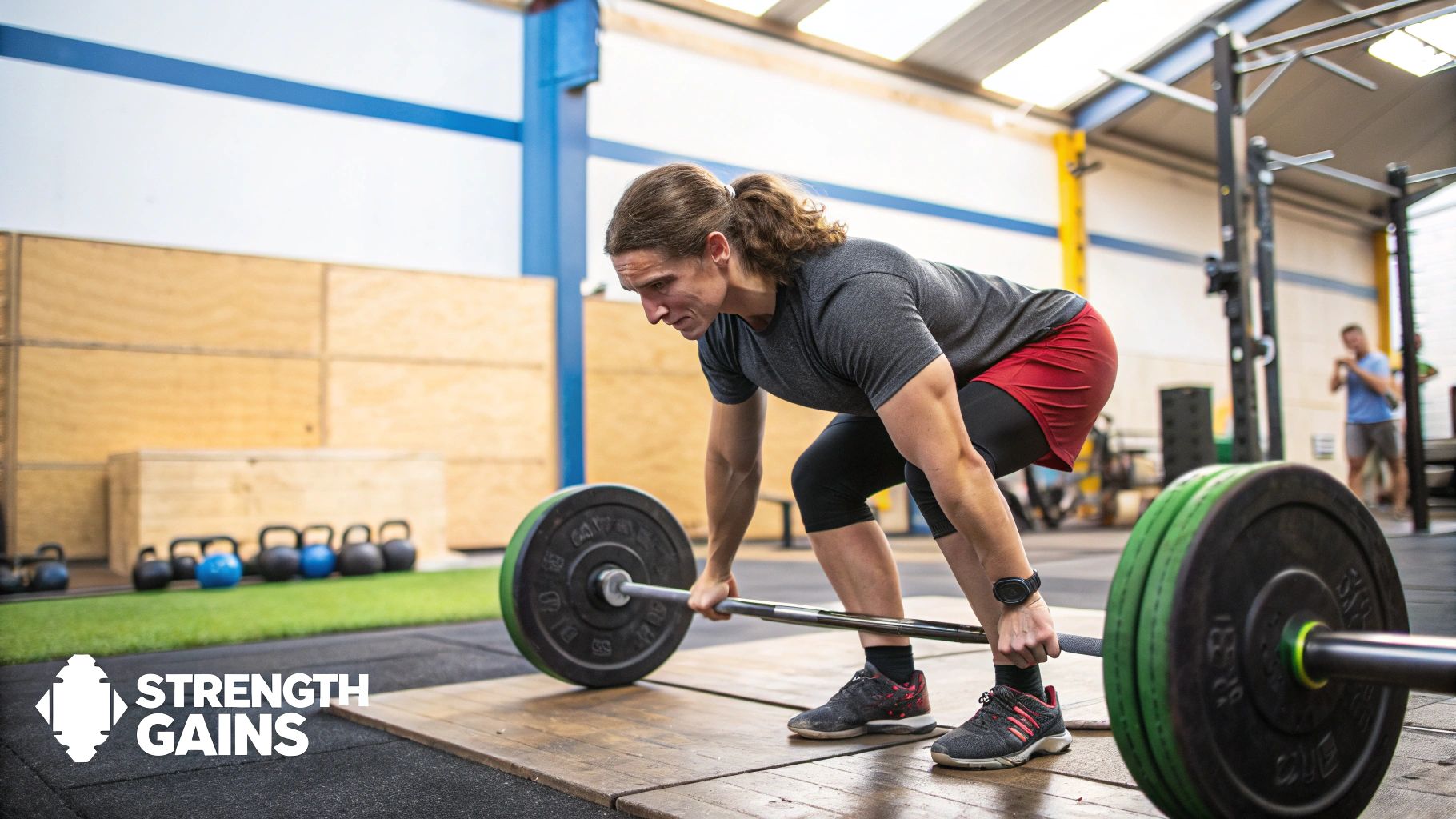
Vague advice like ‘work out’ isn't enough. To naturally boost your testosterone, you must be deliberate, choosing training that forces a powerful response from your body. It's time to get smart and move beyond aimless gym sessions.
The absolute foundation of this approach is resistance training. Lifting weights does more than just build muscle; it’s a direct signal to your body to crank up testosterone production. The trick is to focus on big, compound movements that recruit multiple muscle groups at once.
Forget about endless bicep curls. Start performing exercises that challenge your whole body.
Build Your Foundation with Compound Lifts
Compound lifts are your secret weapon for hormonal health. Because they use so many muscles, they create a much bigger metabolic demand and a far more significant hormonal reaction than small, isolation movements.
Revolve your training around these heavy hitters:
- Squats: The undisputed king of lower-body exercises. They hammer your quads, hamstrings, glutes, and core.
- Deadlifts: A true full-body powerhouse, building raw strength from your back and legs right down to your grip.
- Overhead Presses: The ultimate test of shoulder strength and stability, demanding a rock-solid core.
- Bench Presses & Rows: Your go-to lifts for building a strong chest and back, creating that balanced, powerful physique.
The key to making progress is progressive overload. This simply means you must aim to either lift a bit more weight or squeeze out more reps over time. This constant challenge is what forces your body to adapt and keeps your testosterone levels firing.
A Sample Full-Body Routine to Start
Here’s a simple but effective twice-a-week routine to get the ball rolling. Always nail your form before you start piling on the weight.
- Barbell Squats: 3 sets of 8-10 reps
- Bench Press: 3 sets of 8-10 reps
- Bent-Over Rows: 3 sets of 8-10 reps
- Overhead Press: 3 sets of 10-12 reps
- Face Pulls: 2 sets of 15-20 reps (great for shoulder health)
This routine is incredibly efficient. It hits all the major muscle groups you need to trigger a strong hormonal response. As you get stronger, gradually add a little more weight to the bar.
Remember, consistency will always beat intensity. Showing up twice a week and giving it a solid effort is so much better than one heroic workout followed by weeks of nothing.
Why Endless Cardio Can Backfire
While a bit of cardio is fantastic for your heart, spending hours pounding the treadmill can actually work against your testosterone goals. Long, steady-state cardio sessions can spike cortisol, the stress hormone that directly competes with and suppresses testosterone.
Instead of long, slow jogs, add some High-Intensity Interval Training (HIIT) into your week. This involves short, all-out bursts of effort followed by brief recovery periods. For instance, sprint flat out for 30 seconds, then walk for 60 seconds, and repeat that 8-10 times.
HIIT is quick, effective, and has been shown to give you a great hormonal boost without the cortisol spike you get from endurance training. This approach is backed by wider health findings; huge studies using the UK Biobank database show that men with active lifestyles have better hormonal profiles and a lower risk of chronic diseases. Finding that sweet spot between resistance training and smart cardio is the key to getting results that last.
Mastering Sleep and Stress for Hormone Balance

You can do everything right in the kitchen and the gym, but if you ignore sleep and stress, you're fighting a losing battle. These two factors are fundamental pillars of hormone regulation. Getting a handle on them is a non-negotiable part of any serious plan to boost testosterone naturally.
The connection is direct and powerful. Your body produces the vast majority of its testosterone while you sleep. Meanwhile, the main stress hormone, cortisol, actively puts the brakes on testosterone production. It's a delicate balancing act, and if you let one side fall, it can undo all your hard-earned progress.
Build a Better Sleep Routine Tonight
Quality sleep is prime time for your body’s most important hormonal work. Consistently getting less than seven hours a night can seriously lower your testosterone levels. Just a single week of poor sleep has been shown to tank T-levels by as much as 10-15% in healthy young men.
Take these actions to improve your sleep quality tonight:
- Blackout Your Bedroom: Make your room as dark as possible. Get blackout curtains or a quality eye mask to block out any light. This helps your body produce melatonin, the hormone that signals it's time for sleep.
- Cool It Down: Set your thermostat to around 18°C, the perfect temperature for sleeping. Your body's core temperature naturally dips as it prepares for rest, and a cool room supports this process.
- Create a "Power-Down Hour": For the last 60 minutes before bed, ditch all screens. The blue light from your phone, tablet, and TV messes with melatonin production. Pick up a book, listen to calming music, or do some light stretching instead.
This isn't just about waking up feeling more rested; it's about giving your body the uninterrupted time it needs for critical hormone synthesis.
Think of sleep as your body's nightly maintenance cycle. Skimping on it is like trying to run a performance car without ever changing the oil—sooner or later, the engine will suffer.
Develop Resilience to Modern Stress
You can't eliminate stress, but you can build resilience to it. When you're constantly frazzled, your body is flooded with cortisol. High cortisol levels tell your body to go into survival mode, which means shutting down anything it deems non-essential right now, including testosterone production.
The goal isn't to avoid stress, but to manage your response to it. Use these practical tools to keep cortisol in check. For instance, a 20-minute walk in nature has been shown to significantly lower stress hormone levels.
Another powerful technique is mindfulness. Perform simple breathing exercises—like a slow four-second inhale followed by a six-second exhale for just five minutes—to calm your nervous system almost instantly. It’s all about creating an internal environment where your hormones can thrive, even when life gets a bit chaotic.
Using Supplements Wisely and Avoiding Scams
Let's be blunt: the supplement market is flooded with flashy bottles and bold claims. Before you spend your hard-earned cash, grasp one simple truth.
No pill or powder can ever replace a solid foundation of a good diet, smart training, and quality sleep. Full stop. However, a few key nutrients, when used strategically, can provide genuine support where you need it most.
Think of them as the support crew, not the main event. This is about intelligently filling nutritional gaps that are surprisingly common, especially for men living right here in the UK.
Focus on What Actually Works
Instead of getting lured in by expensive "T-booster" stacks, it’s far smarter to focus on individual ingredients that have real science backing their role in hormone health. Honestly, many of those popular blends are just under-dosed, overpriced kitchen sinks.
Here are the key players you should actually consider:
- Vitamin D: We call it the "sunshine vitamin," but it really acts more like a hormone in the body. Given the distinct lack of consistent sun in the UK, a huge chunk of the population is deficient. This can directly drag down testosterone levels. Supplementing is a no-brainer, especially through the autumn and winter months.
- Zinc: This mineral is a true cornerstone for hormone production, playing a direct part in synthesising testosterone. If you don't eat much red meat or shellfish, or you sweat a lot from intense exercise, your zinc levels could easily take a hit.
- Magnesium: This is a powerhouse mineral, vital for hundreds of bodily functions. When it comes to T-levels, it helps blunt the impact of stress and can increase the amount of free, usable testosterone in your system, especially when you're physically active.
Before starting anything new, have a chat with your GP. A simple blood test can show if you're deficient in anything, allowing you to supplement with purpose instead of just guessing.
How to Spot a Supplement Scam
The market is full of products that do little more than lighten your wallet. One of the biggest red flags to watch for is the infamous "proprietary blend." This is a sneaky tactic where a company lists a mix of ingredients but hides the exact dose of each one.
What does that usually mean? They’ve likely included a tiny, ineffective sprinkle of the good stuff and padded out the rest with cheap fillers.
If a company isn't transparent about what's in their product and in what amounts, they don't deserve your trust or your money. Always demand full transparency.
Another powerful, natural substance worth considering is shilajit. It’s a resin rich in fulvic acid and over 85 trace minerals with a long history of use for boosting vitality and supporting hormonal balance. For anyone curious, you can learn more about the specific shilajit uses for men and how it fits into a holistic health plan.
This image highlights how simple, non-supplement activities can lower cortisol—a critical step in allowing your body to boost testosterone naturally.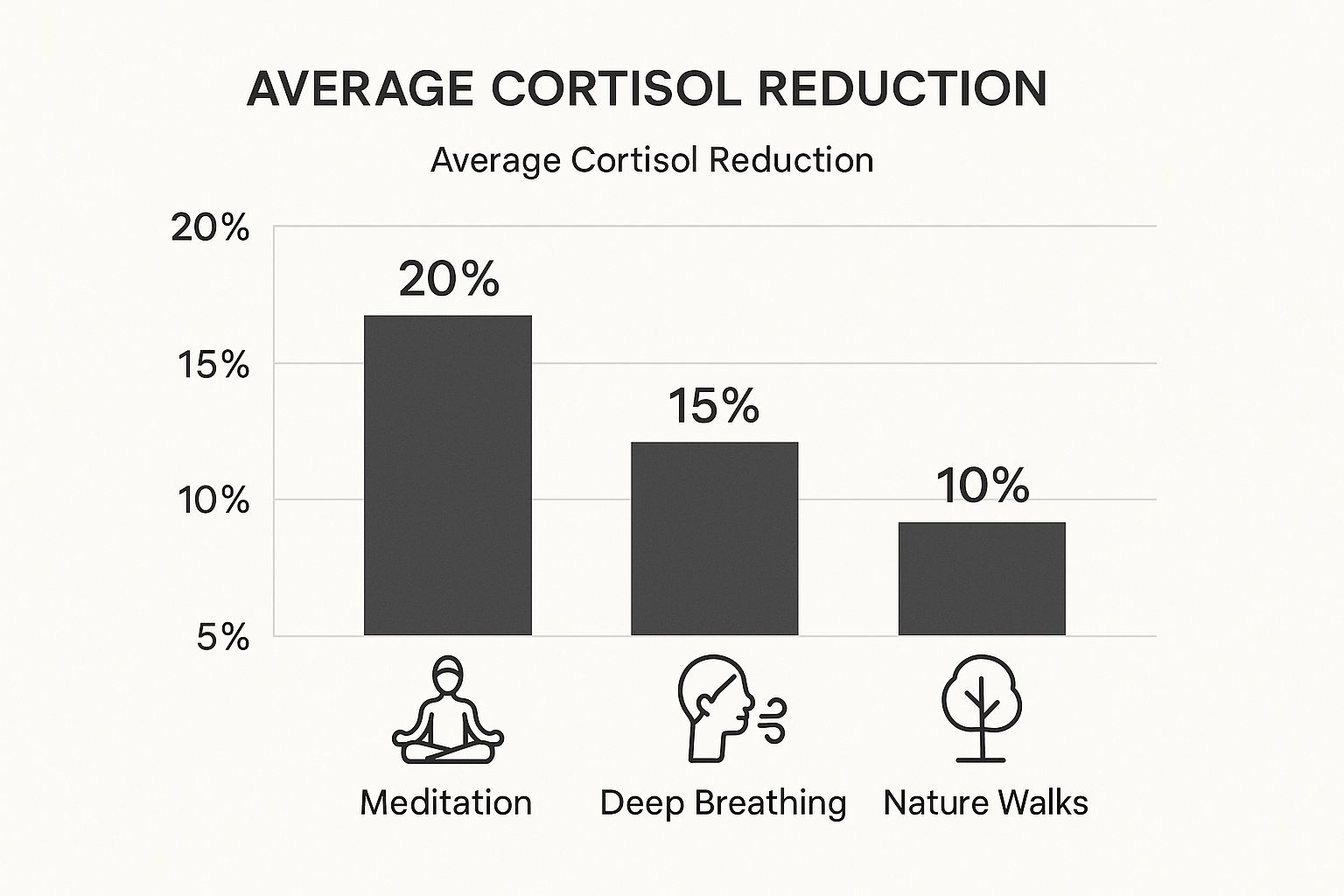
As you can see, something as simple as consistent meditation can have a massive impact on reducing cortisol, proving just how powerful stress management is for your hormonal health.
Evidence-Based Supplements vs Market Hype
Navigating the supplement aisle can be confusing. To help cut through the noise, this table compares ingredients with solid scientific backing against the common hype and red flags you should be wary of.
| Supplement/Ingredient | Potential Benefit | Level of Evidence | Considerations & Cautions |
|---|---|---|---|
| Vitamin D3 | Supports hormone production; deficiency is linked to low T. | High | Deficiency is common in the UK. Best to get levels tested by your GP. |
| Zinc | Essential for the direct synthesis of testosterone. | High | Athletes or those with low dietary intake are at higher risk of deficiency. |
| Magnesium | Can increase free testosterone, especially in active men. | Moderate-High | Many forms exist; glycinate or citrate are well-absorbed. |
| Shilajit | Rich in minerals, supports energy and vitality. | Moderate | Look for purified, high-quality sources. Has a long history of use in traditional medicine. |
| "Proprietary Blends" | Claims to boost T, energy, libido, etc. | Very Low | Red Flag! Hides individual ingredient doses, often under-dosed and overpriced. Avoid. |
| Tribulus Terrestris | Marketed as a testosterone booster. | Very Low | Human studies consistently show no significant effect on testosterone. May slightly improve libido. |
This table isn't exhaustive, but it highlights a key principle: focus on foundational nutrients and proven ingredients. Be sceptical of any product that promises the world but isn't transparent about what's inside.
Your Top Testosterone Questions Answered
Starting any new health journey is bound to bring up questions. When it comes to your hormonal health, getting clear, honest answers is what keeps you on track.
Let's cut through the noise and tackle the most common things men wonder about when they decide to boost their testosterone the natural way.
How Long Until I See Real Results?
This is the big one. The straightforward answer is, it's different for everyone. Your current health, your genetics, and—most importantly—how consistent you are with these actions will all shape your timeline. But you can generally expect a phased journey.
- In the first 2-4 weeks: You'll likely notice better sleep quality pretty quickly. This leads to more stable energy and a clearer head during the day.
- After 1-3 months: This is when the effects become more noticeable. You might find you're recovering better from workouts or pushing more weight in the gym. Many men also report an uptick in their libido and a general feeling of well-being.
- By 6 months and beyond: With consistent effort, you could see significant shifts in your body composition—more muscle and less body fat. The hormonal benefits should be firmly in place, fuelling sustained energy and vitality.
The key takeaway here? This is a marathon, not a sprint. The positive changes build on each other. Don't get disheartened if you don't feel like a superhero overnight. Consistency is the magic ingredient for lasting results.
Does Age Cap My Natural Potential?
Testosterone tends to decline by about 1% each year after you hit 30. But that’s just an average, not your destiny. While age is a factor, it doesn’t put a hard ceiling on what you can achieve.
Think of it this way: a 50-year-old man who dials in his nutrition, training, sleep, and stress can absolutely have healthier testosterone levels than a 30-year-old with a poor lifestyle. You might not get back to the peak T-levels of your early 20s, but you can definitely optimise your body's production right now. The goal is to be the best version of yourself, at any age.
Interestingly, UK-specific research has even looked into the wider impact of hormones. A study from the University of Essex found a link between higher natural testosterone and increased earnings in some professional fields, suggesting it influences things like motivation and drive. You can read more about the study's findings on economic outcomes to see just how deep these connections can go.
When Should I Speak to a Doctor?
Taking control of your health is empowering, but it should never replace professional medical advice. Knowing when to call in an expert is crucial. Book an appointment with your GP if:
- You're dealing with severe and persistent symptoms of low T, like chronic fatigue, very low mood, a complete lack of libido, or erectile dysfunction.
- You have consistently followed a healthy lifestyle for 6-12 months but have seen zero improvement in your symptoms.
- You simply want a baseline blood test to see your exact hormone levels before you start making changes.
A doctor can run the right tests to rule out any underlying conditions and give you a proper diagnosis. They are also the only ones who can advise on whether medical interventions are a suitable option for you. If you're exploring supportive options, you might find our guide on the top testosterone-boosting supplements helpful for understanding how they can fit into a healthy lifestyle.
Ready to support your body's natural balance with a simple, powerful daily habit? Oji Shilajit gummies deliver over 85 essential minerals to help boost your energy, sharpen your focus, and manage stress. Make them part of your routine and feel the difference. Discover Oji Shilajit today.


